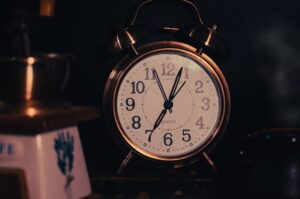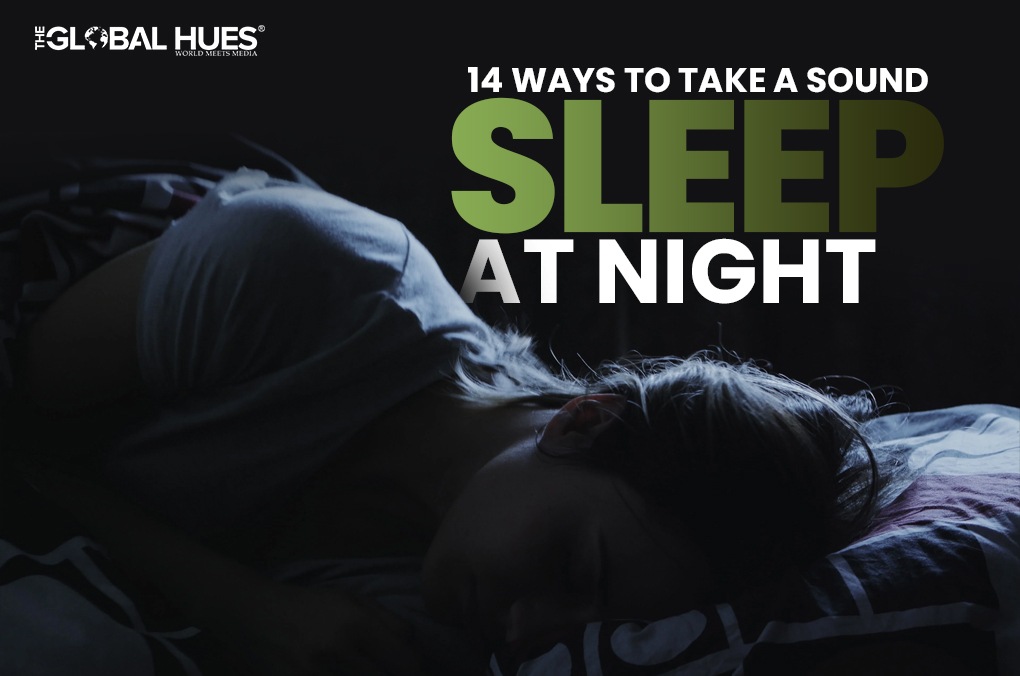Do you constantly feel tired and drowsy throughout the day? If so, it’s a clear sign that you’re not getting sound sleep and are suffering from sleep deprivation.
On an average, people between the age group of 16 and 64 should aim for a minimum of 7 to 9 hours of sleep. However, many people are getting as little as 3 hours of sleep due to late-night internet browsing, night shifts, and late-night eating.
Sleep deficiency not only results in health problems but also hampers productivity. Let’s take a look at some methods to help you attain the right amount of sleep.
14 Ways To Get Sound Sleep
-
Have A Perfect Bed & Mattress
To get a sound sleep, you need to have a good mattress and a good pillow. Some mattresses and pillows are made in a way that doesn’t hurt your neck. Having a cosy and comfortable bed is an invitation to sleep comfortably. For quality sleep essentials, OMF offers a wide selection of mattresses and pillows designed for both comfort and support.
-
Block/Switch Off The Lights
Getting exposed to the light from your phone messes with the circadian rhythm of the body and leads to a delay in sleep. Use a mask on your eyes and draw the curtains to ensure that no light disturbs you. It contributes to the production of melatonin, a hormone that promotes sleep.
-
Minimise The Noise
Along with lights, noises make it difficult to fall asleep. You can consider using earplugs to block out any potential noise source. If you don’t have double-glazed windows, opt for curtains made from heavy fabric to help in blocking out external noise.
-
Set Your Alarm For Each Day

To get a sound sleep, it is imperative to set a routine to sleep and get up at the designated time. Even on weekends, wake up at the designated time, even if you feel not to. It may take time, but once a pattern sets, you won’t even need an alarm clock to wake you up.
-
Don’t Nap For More Than 20 Minutes
Taking a nap is crucial for the body as you feel recharged and replenished. However, you should ensure that your nap time doesn’t exceed 20 minutes, as sleeping during the day can cause trouble falling asleep at night. The best time for a nap is in the early afternoon after lunch.
-
Relax For 30 Minutes Before Bed
When you are getting ready to sleep, take 30 minutes to relax on the bed. You can read something light, listen to soothing music, and do meditation and relaxation exercises. The focus should be on getting relaxed rather than falling asleep.
-
Disconnect All Devices Before Bed
Before getting ready to sleep, ensure to power down all the electronics, like tablets, smartphones, and laptops. The blue light emitted from these electronics would suppress the production of melatonin. Try to disconnect at least an hour before going to sleep.
-
Get Some Natural Light Exposure
Your body’s internal clock gets regulated by light exposure. Sunlight affects your body, so try to soak up all the sunlight by standing in the sun for some time or drawing the curtains away to ensure light enters your room. Another option is to talk to your physician for light box therapy.
-
Limit Caffeine Intake After 2 PM
Coffee and tea are people’s go-to beverages to fight morning sleepiness, but consuming too much can lead to acidity, gas, and even long-term sleep deprivation. It’s important to monitor your caffeine intake and avoid drinking these beverages in the afternoon. As a soothing alternative, you can try blue lotus tea from https://deltanorthtea.com/
Also Read: 5 simple exercises to improve breathing
-
Avoid Alcohol Before Sleeping
You should avoid alcohol before sleeping as it messes with your sleep pattern. Alcohol creates nightmares and dreams, making you feel half awake and half asleep. In some cases, you might also sleepwalk without knowing.
-
Eat Dinner Early
If you eat dinner by 7:30 P.M., the food gets digested, making it easy to fall asleep quickly. If it is not possible to have an early dinner, ensure it is light without too much spice. Do not eat oily foods at night as digestion slows down during nighttime and makes it difficult to fall asleep.
-
Write In A Journal

The biggest enemy of your sleep is worries and overthinking, and if you are thinking or worrying too much, try writing down your feelings. Doing this brings you clarity and makes you feel light, and you can fall asleep quickly.
-
Take A Relaxing Shower
Taking a shower before sleeping helps you relax your mind and body, which leads to having a sound sleep. The rise and fall in temperature signal your body that it is time to sleep. The warm water shower helps you relax and reduces overall stress and anxiety.
-
Rule Out Sleep Disorder
If you have tried all these tips and cannot experience proper sleep, consult the doctor to check if there are any physical or underlying medical conditions for this issue. If you suffer from problems like sleep apnea, sleepwalking, and circadian rhythm sleep/wake disorders, consult the doctor.
Summing Up
Experiencing sound sleep is crucial for maintaining a healthy body and having good mental health. These tips help you make small changes to your lifestyle to experience a good night’s sleep.




